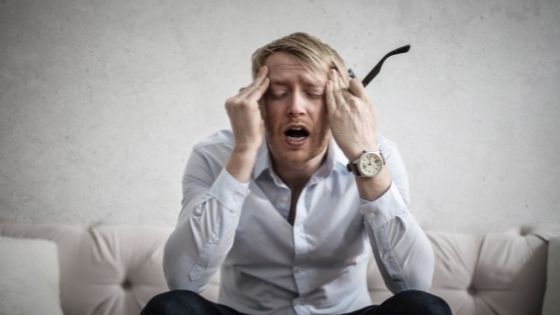What causes anxiety? The answer is varied depending on your health and everything that surrounds you. There is no definitive answer, as various factors can cause anxiety. However, some of the most common causes of anxiety include stress, genetics, traumatic life events, and chemical imbalances in the brain. It’s also important to note that everyone experiences pressure differently, so there is no one-size-fits-all answer to this question.
Things that can help you treat anxiety
Despite the variety of causes, there are a few things that are common to all cases of anxiety. Generally, people who experience anxiety will feel worried, tense, and restless. They may also have difficulty sleeping or concentrating and constantly feel on edge.

Additionally, many people with anxiety will suffer from physical symptoms such as headaches, nausea, or chest pain. According to the National Alliance on Mental Illness, 40% of the US population has an Anxiety disorder. This problem can be a debilitating condition, but luckily, it can be managed and controlled with the proper treatment.
1. CBD Oil
CBD oil is one of the most popular things to help treat anxiety. CBD, or cannabidiol, is a cannabinoid found in cannabis plants. Unlike THC, CBD does not have psychoactive effects, meaning it will not make you high. You can also try Delta 8 the cartridges here may have numerous health benefits, including reducing anxiety.
2. Exercise
Exercise is another excellent way to reduce anxiety. Studies have shown that aerobic exercise can be beneficial in reducing anxiety symptoms. Exercise has many other health benefits, so it’s a great activity to get into, even if you don’t suffer from anxiety.
3. Meditation
Meditation is another popular method for reducing anxiety. This mindfulness practice can help you focus on the present moment and let go of intrusive thoughts and worries. There are many different types of meditation, so it’s essential to find one that suits your needs and interests.
4. Relaxation techniques
Relaxation techniques such as deep breathing, and progressive muscle relaxation, can also help reduce anxiety. These techniques work by allowing you to focus on the present moment and letting go of intrusive thoughts.
5. Journaling
Journaling is a great way to process your thoughts and feelings. It can also help identify patterns or triggers for your anxiety. In addition, writing down your thoughts can help you see them in a different light and may help you find solutions that you wouldn’t have thought of otherwise.
6. Cognitive behavioral therapy
Cognitive-behavioral therapy (CBT) is a type of psychotherapy that can effectively treat anxiety. CBT works by helping you identify and change negative thought patterns that contribute to your stress.
7. Eat a healthy diet
Eating nutritious foods is essential for everyone, but it’s necessary if you’re struggling with anxiety. In addition, eating a balanced diet can help keep your energy levels up and improve your mood.
8. Get enough sleep
Most people need around eight hours per night. If you’re not getting enough sleep, your anxiety can worsen. So make sure to get a good night’s sleep and stick to a regular sleep schedule.
9. Avoid alcohol
While alcohol may seem like a quick and easy way to calm down, it can worsen anxiety in the long run. Alcohol is a depressant, and when mixed with fear, it can lead to serious health problems.
10. Avoid caffeine
Caffeine is a stimulant, and while it may help you feel more alert in the short term, it can also exacerbate feelings of anxiety. Therefore, avoid caffeinated beverages such as coffee, tea, and energy drinks.
11. Take breaks
When you’re feeling overwhelmed by anxiety, it can be helpful to take a few minutes to yourself. Step away from the situation causing you to stress and take some time for yourself. Relax your muscles, take some deep breaths, and allow yourself to calm down.
12. Connect with loved ones
One of the best ways to manage anxiety is to connect with loved ones. Spending time with friends and family can help you feel supported and valued.
13. Seek professional help
If you’re struggling with anxiety, it’s essential to seek professional help. A mental health professional can provide you with the tools and techniques you need to manage your anxiety.
14. Stay positive
One of the most important things you can do when dealing with anxiety is to stay positive. Remember that you are not alone and that there is help available. Be patient with yourself and focus on your strengths. Things that can help treat anxiety are not one size fits all, so it may take some trial and error before you find what works best for you. Thank you for reading.
15. Socialize
Getting social is also an easy way to deal with anxiety. So the next time you’re feeling anxious, try reaching out to a friend or family member. You could also try joining a support group or attending therapy sessions.
Conclusion
While everyone experiences anxiety differently, some things can universally help relieve it. Stress doesn’t have to control your life. You have the power to take back control. Start today by implementing some of the techniques and strategies that work best for you, and remember that you aren’t alone.
